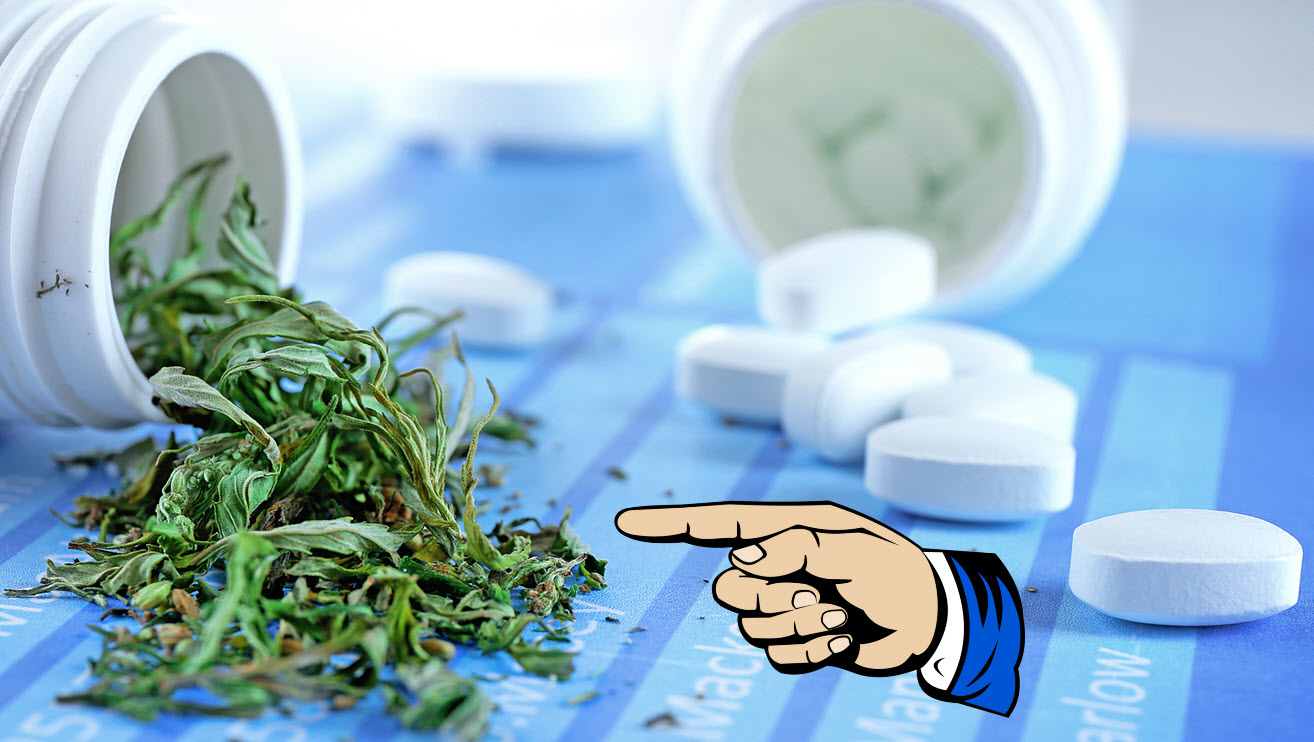
Does CBD Harm Ibuprofen Sales?
Pain is a natural and inevitable occurrence in the human body. It is one of the body’s reactions to self-healing. But sometimes it gets too much and pain medication has to come into play.
Ibuprofen is one of the most effective drugs for relieving chronic pain symptoms. People are relieved of headache, toothache and back pain by using this drug.
More than 50% of the American population have consumed ibuprofen at some point. Unfortunately, sometimes it comes with side effects like ulcers etc.
Now, with the newly tested and proven therapeutic properties of the cannabidiol compound, it can be assumed that CBD could be an effective alternative to treating pain. However, CBD is not yet approved for medical use.
The fascinating effects of CBD as a natural dietary supplement have grown in popularity and what makes it more attractive is that it doesn’t appear to have any serious side effects according to the research that has been conducted.
CBD VS IBUPROFEN
Here we would compare both compounds to see if the all-natural panacea called CBD is effective enough to replace ibuprofen as the pain reliever of choice.
Source of CBD
The cannabinoid is obtained from hemp. There are several different extraction methods, but the most common safe method is extraction with solvents such as ethanol or carbon dioxide. After extraction, the CBD molecules are converted into a topical, oil, or capsule gel form.
Source of ibuprofen
This drug is developed from propionic acid. This fatty acid is used in the laboratory for its antibacterial properties and is also used to fight off mold outbreaks.
How CBD Works
When ingested, CBD increases natural endocannabinoid levels, the EndoCannabinoid System (ECS) is its primary contact in the body. This system is a network of receptors that are located in the body and in the brain. It is responsible for homeostatic functions such as immune response, sleep, appetite, and pain.
CBD relieves pain by activating and promoting the production of the CB2 receptors in the ECS.
Some researchers say that several conditions such as migraines, irritable bowel syndrome, and fibromyalgia are due to an endocannabinoid deficiency.
Cannabinoids work in conjunction with other body organs to relieve pain, modulate pain thresholds, and slow down the production of inflammatory particles.
This is how ibuprofen works
When a body suffers an internal or external injury, nonsteroidal anti-inflammatory drugs (NSAIDs) like ibuprofen work by slowing down the production of prostaglandin.
Prostaglandin is the hormone that causes pain and swelling in response to the release of prostanoids.
The prostaglandin hormone is produced by the enzyme cyclooxygenase, also called COX.
Ibuprofen inhibits the production of the enzymes COX-1 and COX-2. Recent studies also show that ibuprofen also stimulates the endocannabinoid anandamide to reduce pain and increase endocannabinoid levels.
Put simply, ibuprofen works like other NSAIDs by reducing the activity of chemicals the body makes to fight off infection or injury.
It should be noted that ibuprofen is a non-selective COX inhibitor; This implies that it causes more side effects than other NSAIDs.
Benefits and side effects
Benefits of CBD
According to researchers, CBD has the necessary properties to relieve pain associated with conditions such as joint, muscle, and nerve pain, inflammation, chronic migraines, ancient injuries, cancer, back pain, rheumatoid arthritis, and osteoarthritis.
In addition, cannabinoids also have the potential to treat insomnia, mental disorders, psoriasis, seizures, acne, and other conditions.
Benefits of Ibuprofen
Ibuprofen is an FDA-approved drug used to treat mild to severe pain, swelling, inflammation, and fever.
It’s affordable and widely available; All pharmacies always have ibuprofen in stock. The smallest dose of this NSAID can provide relief to the user.
Not only is it often prescribed as a pain reliever, but it also helps prevent blood clots from forming in certain diseases. Doctors also prescribe it to patients with musculoskeletal injuries and fevers.
Side effects of CBD
Side effects after using CBD are rare. It is generally safe because of its non-psychoactive nature. The chances of getting high or overdosed on CBD products are very small.
Researchers have not set a recommended dosage for CBD products mainly because it has yet to be approved by the Food and Drugs Administration.
If you fall into the tiny percentage of consumers who may experience side effects, these include; Difficulty staying awake, dry mouth, dizziness, heartburn and nausea.
However, these side effects can only occur if the product is used in excess. All the more reason to start slowly with a low dose.
Side effects of ibuprofen
Although ibuprofen is very effective, it carries several risk factors that affect a significant number of users. The FDA says that even short-term use of ibuprofen is enough to increase the risk of cardiac arrest and stroke. Some of the side effects are;
-
dizziness
-
nausea
-
Vomit
-
a headache
-
diarrhea
-
Flatulence
-
heartburn
-
Rash
-
constipation
-
Ringing in the ears
-
Blistering
-
Blurred vision
In extreme cases this can increase with prolonged use of the drug in high doses
-
Gastric bleeding
-
Ulcers
-
stroke
-
Kidney or liver failure
-
High blood pressure
-
Asthma attacks
-
Heart attack
I have to point out that the recommended dose of ibuprofen is 1200 mg per day. It is often not recommended for use with seniors. Statistically, ibuprofen is responsible for at least 3,000 deaths per year in this age group.
Is the combination of the two a bad idea?
Combining CBD with ibuprofen is not a bad idea, according to research. Studies show that both compounds can be mixed without the risk of side effects. It depends on the tolerability and sensitivity of the user to both drugs.
Not all NSAIDs can be combined with CBD. Most particularly naproxen and celecoxib; Mixing both with CBD can be tough.
To be on the safe side, consult your doctor before mixing ibuprofen and CBD. This is because, while your body has no proven interaction between the two drugs, it could have a personal reaction.
Final thoughts
In order for the FDA to approve CBD as a pain reliever, further research is being done to fully understand the complexity of the ECS and its interaction with CBD.
Until then, proceed with caution – only buy your products from trusted sources.
MORE ABOUT IBUPROFEN AND CANNABIS READ THIS …

CAN REPLACE CBD IBUPROFEN, CLICK HERE!

Post a comment: